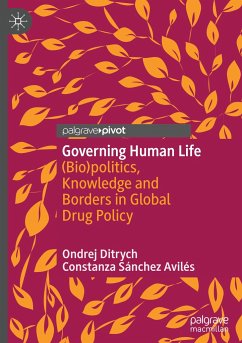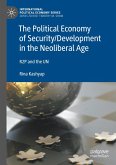This book is a critical analysis tracing the operation of biopolitical mode of power in the global field of drug control. Through a series of theoretically framed investigations that relate current drug control policies to the broader frame of 'vital politics', it attends to the relationship of drug control, state of exception and democracy, exploring how pressures of resurgent sovereignty and neoliberal governmentality imprint on drug policy. Then, it turns attention to the relationship of power and knowledge, with a particular focus on the 'evidence-based' approaches that may at times sustain rather than challenge prohibitionist drug control policies. Finally, it looks at how the global drug control dispositif shapes life on one of Europe's (internal) peripheries. These investigations are intended to illuminate the operation of the drug control dispositif and its far reaching (bio-)political effects in order to expand the space for devising more competent and compassionate public policies.
Bitte wählen Sie Ihr Anliegen aus.
Rechnungen
Retourenschein anfordern
Bestellstatus
Storno









